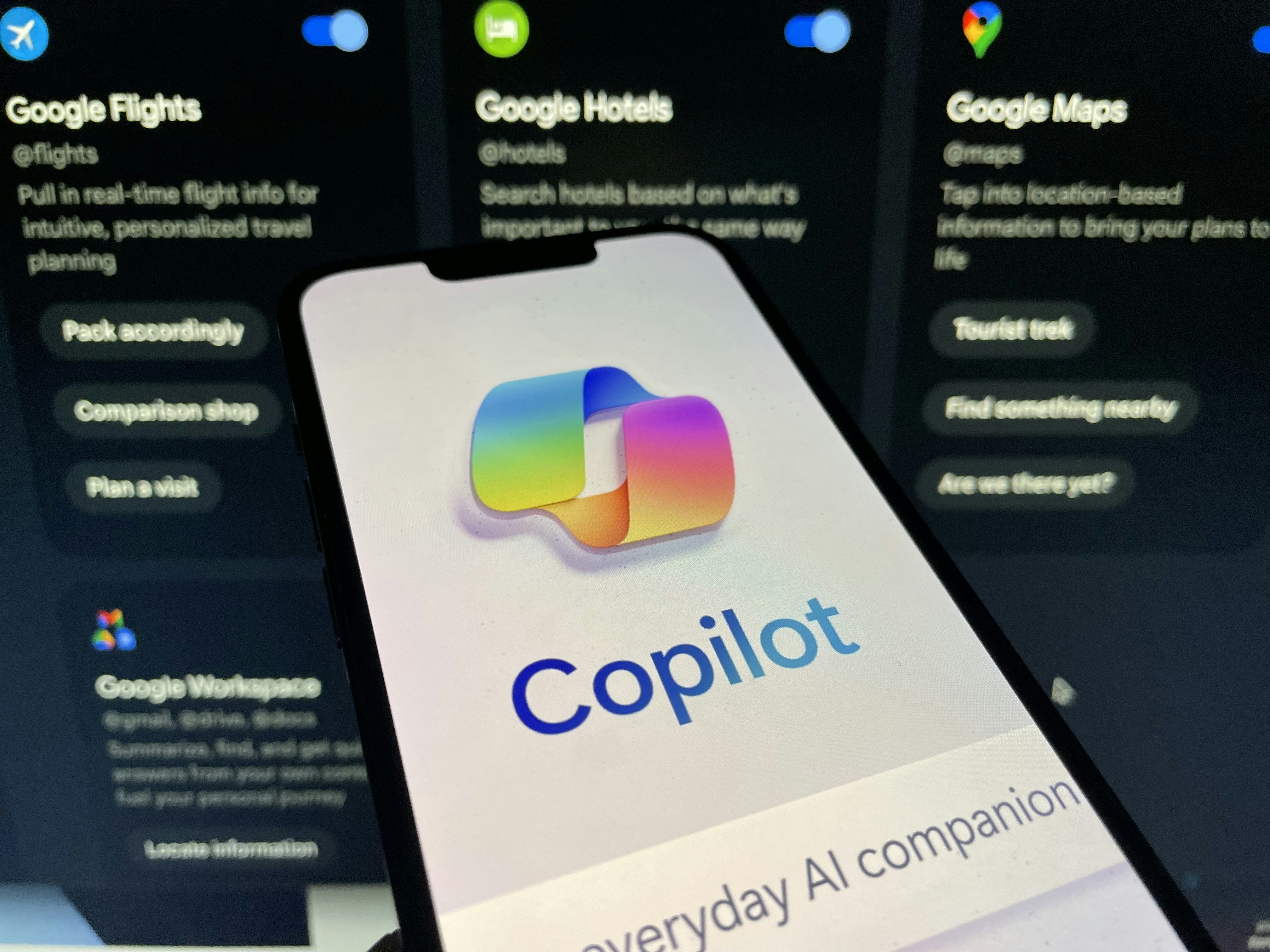Explore Our Powerful Magic Spells
Choose a spell that suits your needs and experience real results today!
Introduction to AI in Travel Planning
In recent years, artificial intelligence (AI) has markedly transformed the landscape of the travel industry. This evolution is primarily evident through the rise of sophisticated travel algorithms that are designed to enhance the overall travel experience for consumers. By leveraging vast amounts of data, these algorithms can analyze traveler preferences, recommend personalized itineraries, and facilitate hassle-free booking processes.
The capabilities of AI in travel planning are wide-ranging. For instance, AI-driven platforms can now process user inputs—such as budget, destination, travel style, and preferences—analyzing hundreds of options within seconds to propose tailored itineraries. This not only saves time but also ensures that travelers find options that align closely with their desires, which might be missed in traditional travel planning methods.
One of the primary benefits of utilizing AI in travel planning is the enhanced efficiency it provides. Algorithms are capable of filtering through countless hotels, flights, and activities, enabling travelers to find the best deals without excessive effort. Furthermore, AI systems continuously learn and refine their recommendations based on past interactions, making them progressively more accurate over time. This personalized approach fosters a more engaging planning process, which can lead to increased satisfaction during travel.
As the travel industry embraces the advancements of artificial intelligence, it has become apparent that the use of AI-driven tools is revolutionizing how people approach vacation planning. From advanced search features to predictive analytics, AI is proving to be an invaluable asset for both seasoned travelers and those seeking new adventures. By understanding the underlying principles of AI in travel planning, consumers can maximize their experiences, making travel more accessible and enjoyable.
The Benefits of Using AI for Travel Planning
Artificial Intelligence (AI) is increasingly transforming the realm of travel planning, offering travelers unparalleled benefits that enhance their journey experience. One of the primary advantages is the ability to provide personalized recommendations tailored to individual preferences. AI algorithms analyze various data points, including past travel history, stated preferences, and even social media activity, to curate suggestions that are uniquely suited to each traveler. This customization allows for a more enjoyable and fitting travel experience.
Time efficiency is another significant benefit of utilizing AI for planning trips. Traditional travel planning can be an arduous task, often requiring hours of researching destinations, accommodations, and activities. AI simplifies this process by quickly aggregating vast amounts of data to produce optimized travel itineraries. By automating mundane tasks, AI technology ensures that travelers can focus on the enjoyment of their upcoming adventure rather than the intricacies of organizing it.
Cost savings are often realized when leveraging AI for travel planning as well. Many AI-driven platforms are designed to find the best deals on flights, hotels, and transportation services, often uncovering promotions and discounts that may not be readily available through traditional channels. This capability leads to more budget-friendly travel options, allowing individuals to maximize their travel experience without overspending.
Finally, handling complex itineraries is made simpler through AI technology. Whether planning multi-destination trips or coordinating various activities within a single location, AI can effectively manage logistics that would otherwise require significant effort. By utilizing AI for travel planning, travelers can effectively navigate their schedules, ensuring a smooth and enjoyable travel experience that caters directly to their needs.
AI Tools and Applications for Travel Planning
The rapid evolution of artificial intelligence has brought about significant advancements in various sectors, including travel planning. A wide range of AI tools and applications are available to assist travelers in booking flights, accommodations, and activities, ultimately enhancing their overall travel experience. These platforms leverage algorithms to provide personalized recommendations and streamline the planning process.
One of the most popular AI-driven platforms is Kayak, which employs machine learning algorithms to analyze extensive datasets. Users can search for flights, hotels, and rental cars simultaneously, and the platform offers tailored suggestions based on previous searches and preferences. Its user-friendly interface enables travelers to compare prices effectively, helping them secure the best deals available in real-time.
💰 Powerful Spells for Wealth & Prosperity
Attract money, success, and financial abundance with real magic spells that bring results fast.
Another notable application is Hopper, which forecasts flight prices using historical data and predictive models. This AI tool alerts users about price drops or ideal booking times, allowing travelers to save significantly on their airfare. By utilizing Hopper, users can make informed decisions regarding when to purchase tickets, effectively enhancing their travel budget management.
For accommodation bookings, Airbnb has integrated AI technology to streamline the search process. The platform analyzes user behavior and preferences to recommend listings that suit individual needs. This personalized approach not only saves time but also improves the chances of finding the perfect home away from home.
Lastly, platforms like TripIt utilize AI-driven features for organizing travel itineraries. By simply forwarding confirmation emails, users receive an automatically generated itinerary that consolidates all essential travel information in one place. This tool enhances the travel planning experience by reducing the effort involved in maintaining multiple reservations.
In summary, the integration of AI technologies in travel planning has transformed the way individuals organize their trips. By utilizing these advanced tools and applications, travelers can optimize their planning, discover the best deals, and enjoy a smoother journey.
How AI Algorithms Personalize Travel Experiences
AI algorithms are increasingly becoming an essential tool in the travel industry, revolutionizing the way people plan their trips. The primary mechanism behind these algorithms lies in their ability to process vast amounts of user data, efficiently parsing through preferences, behaviors, and historical information to create personalized travel experiences.
When users engage with travel platforms, they often input a variety of information, including destinations, budgets, travel dates, and interests. AI algorithms analyze this data to identify patterns and preferences unique to each user. For instance, if a traveler frequently searches for outdoor activities and eco-friendly accommodations, the algorithm learns to prioritize similar recommendations, curating options that align with the user’s interests.
Moreover, machine learning models continuously improve the personalization process as they gather more data over time. These models adapt by learning from past interactions, such as previous bookings, reviews, and searches, thus refining recommendations to better suit the individual traveler’s requirements. This dynamic process involves comparing new user inputs with a database of past user preferences and successful travel experiences to create tailored suggestions that resonate on a personal level.
Furthermore, AI algorithms make use of contextual information, such as seasonal trends and local events, taking into account external factors that could impact travel preferences. For example, if a user shows interest in cultural events, the algorithm can surface opportunities to experience local festivals or exhibitions during their intended travel dates.
Ultimately, the goal of AI in travel planning is to streamline the decision-making process, ensuring travelers receive relevant and satisfying suggestions that enhance their overall experience. By effectively leveraging user data and learning from individual behaviors, AI algorithms are transforming the landscape of personalized travel recommendations, making trip planning more efficient and enjoyable.
Challenges and Limitations of AI in Travel Planning
As artificial intelligence increasingly takes on a greater role in travel planning, it is essential to acknowledge the challenges and limitations inherent in its use. While the algorithms powering AI travel planning may offer efficiency and convenience, they are not without noteworthy drawbacks. One significant concern is data privacy. In order to provide tailored recommendations, AI systems require access to an extensive range of personal data, including travel preferences, payment information, and browsing history. This raises potential risks related to data breaches or misuse of sensitive information, leading travelers to be cautious about their engagement with AI-driven platforms.
Explore Our Powerful Magic Spells
Choose a spell that suits your needs and experience real results today!
Another formidable limitation is algorithmic bias. AI systems are only as good as the data they are trained on. If the datasets used reflect partial or biased perspectives, this can lead to recommendations that are not truly representative or beneficial for all users. For instance, a travel itinerary generated by AI may inadvertently favor certain destinations or experiences based on historical data, neglecting emerging or lesser-known travel opportunities that may align better with an individual’s interests. Hence, travelers must recognize that AI cannot fully replace the nuanced understanding and personal touches that a human travel advisor can provide.
Furthermore, while AI excels at processing vast amounts of information, it lacks the emotional intelligence that human travel planners possess. Travelers often seek not only logistical assistance but also personal connections and insights derived from real-life experiences. Consequently, the occasional absence of human touch in AI-generated travel plans can lead to a lack of personalized and enriching experiences. In navigating travel arrangements, users should consider leveraging AI tools while balancing them with their insights and preferences to create truly memorable journeys.
Integrating AI with Traditional Travel Planning Methods
As travel planning continues to evolve, integrating artificial intelligence (AI) tools with traditional methods presents travelers with a well-rounded approach to crafting the perfect trip. AI-driven solutions can streamline the research process by providing tailored recommendations that cater to individual preferences, timelines, and budgetary constraints. However, it is equally important to complement these technological advancements with human intuition and experience to ensure a comprehensive travel plan.
One effective strategy is to utilize AI for the preliminary stages of research, where algorithms can analyze vast datasets to deliver personalized suggestions for destinations, accommodations, and activities. Numerous AI-powered platforms can assess factors such as user ratings, geographical appeal, and even emerging trends to provide options that might not have been considered otherwise. Additionally, these tools can facilitate comparisons of prices and availability, saving valuable time in the early research phases.
Once a traveler has gathered initial insights using AI, the integration of traditional travel planning methods becomes essential. Engaging with experienced travel agents or utilizing local guides can add a human touch to the itinerary. These professionals bring a wealth of knowledge about destinations that AI simply cannot replicate, such as cultural nuances, hidden gems, or historical contexts surrounding certain attractions. Their experience can aid in refining the AI-generated recommendations to suit personal desires and expectations.
Moreover, it is beneficial to combine AI assistance in logistical planning, such as booking flights and accommodations, with tried-and-true practices like maintaining a flexible itinerary and staying open to spontaneous experiences. By blending the efficiency of AI with the emotional insights of personal experiences, travelers can create itineraries that are not only efficient but also rich in authenticity. Thus, a holistic approach empowers travelers to embrace the best of both worlds—leveraging technology while honoring human interaction and intuition in their journey.
Case Studies of Successful AI Travel Planning
The integration of artificial intelligence in travel planning has transformed the industry, enabling travelers to experience personalized and efficient planning processes. Several case studies stand out, illustrating the successful application of AI tools in diverse travel scenarios, highlighting not just the efficiency gained but the overall satisfaction of travelers.
One noteworthy example is the use of AI-driven platforms like Hopper, which leverages predictive algorithms to help users find the best time to book flights. In a case study involving a family planning a vacation to Europe, they utilized Hopper’s price prediction feature. By receiving alerts about fare drops, the family saved approximately 25% on their tickets compared to traditional booking methods. This case not only showcases cost efficiency but also the ease and peace of mind AI technologies can offer.
Another interesting scenario involved a group of colleagues who used an AI-based travel assistant named Mezi for their business trip. The group needed to coordinate multiple schedules and preferences effortlessly. Mezi analyzed their requirements and curated personalized itineraries that took into account flight options, accommodation preferences, and local activities. The result was a seamless experience that significantly reduced planning time and increased overall satisfaction. The colleagues reported a more enjoyable trip, able to focus on their meetings rather than logistical headaches.
Furthermore, a solo traveler exploring Asia turned to AI-powered tools such as Google Travel to craft an itinerary that encompassed various destinations with minimal effort. The platform offered recommendations based on their interests and previous travel data, resulting in an exceptional travel experience filled with distinctive local attractions. This case exemplifies how AI technology can cater to individual preferences, providing curated travel recommendations that enhance the overall trip.
These case studies unequivocally demonstrate that travelers are experiencing tangible benefits from utilizing AI in their planning processes. The versatility and adaptability of AI tools play a pivotal role in tailoring travel experiences, ensuring that users can embark on journeys perfectly suited to their tastes and needs.
Future Trends in AI Travel Planning
The future of AI in the travel industry is poised for remarkable evolution, driven by continuous advancements in technology. Emerging trends demonstrate a significant shift towards more personalized and efficient travel planning processes. Machine learning, a subset of AI, enables systems to learn from vast datasets, thereby enhancing the ability to make accurate predictions regarding traveler preferences. This predictive capability ensures that travelers receive tailored recommendations, ranging from destinations to activities that align with their interests and budgets.
Natural language processing (NLP) is another pivotal advancement that is set to transform AI travel planning. By enabling machines to understand and interpret human language, NLP allows users to interact with travel planning tools in a more intuitive manner. Chatbots equipped with NLP capabilities can answer queries in real-time, assist in booking processes, and provide updates on travel itineraries, thereby streamlining the overall experience for travelers. These chatbots can mimic human conversation, facilitating a more engaging and user-friendly interface.
Moreover, innovations in data analytics are likely to enhance the capabilities of AI in the travel sector. By leveraging data from social media, travel reviews, and user-generated content, algorithms can gain insights into trending destinations and activities. This wealth of information not only helps travelers make informed decisions but also allows travel agencies to curate bespoke services that cater to current market demands.
As the integration of AI technologies becomes more sophisticated, we can expect to see augmented reality (AR) and virtual reality (VR) becoming commonplace in the travel planning sphere. These technologies will provide immersive experiences, allowing potential travelers to virtually explore destinations before making a commitment. This holistic approach to travel planning, powered by advanced AI applications, is likely to redefine the travel experience, making it more enjoyable and enriching for users in the future.
Conclusion: Embracing AI for Seamless Travel Planning
As we conclude our exploration of AI in travel planning, it is evident that the integration of artificial intelligence can significantly enhance the travel experience. Throughout the blog, we have highlighted the myriad ways AI algorithms can assist in crafting a personalized journey tailored to individual preferences. From recommending accommodations that suit specific tastes to facilitating efficient travel routes, AI serves as a valuable companion during the trip planning process.
One of the most noteworthy advantages of utilizing AI in travel planning is its ability to analyze vast amounts of data quickly. This capability enables travelers to access real-time information, ensuring that their itineraries reflect the most current options available. Moreover, AI systems can provide tailored suggestions that align with varying budgetary constraints, allowing users to make informed decisions without feeling overwhelmed by choices.
Furthermore, the customization that AI offers cannot be overstated. By leveraging user data, these intelligent systems can learn from past trips to suggest activities and destinations that resonate with travelers’ interests. This level of personalization not only creates memorable experiences but also fosters a sense of connection with the places visited.
To fully reap the benefits of AI-driven travel planning, we encourage readers to remain open-minded and explore various AI tools available today. Whether it’s using intelligent booking platforms, chatbots for instant assistance, or personalized recommendation systems, embracing technology can lead to a more efficient and enjoyable planning process.
In summary, the potential of AI to transform and streamline travel planning is immense. By incorporating these advanced tools into your future travel endeavors, you can enhance not only the planning phase but also the overall experience of your journeys. We invite you to experiment with these AI resources on your next trip and discover the convenience and excitement they can bring to your adventures.









